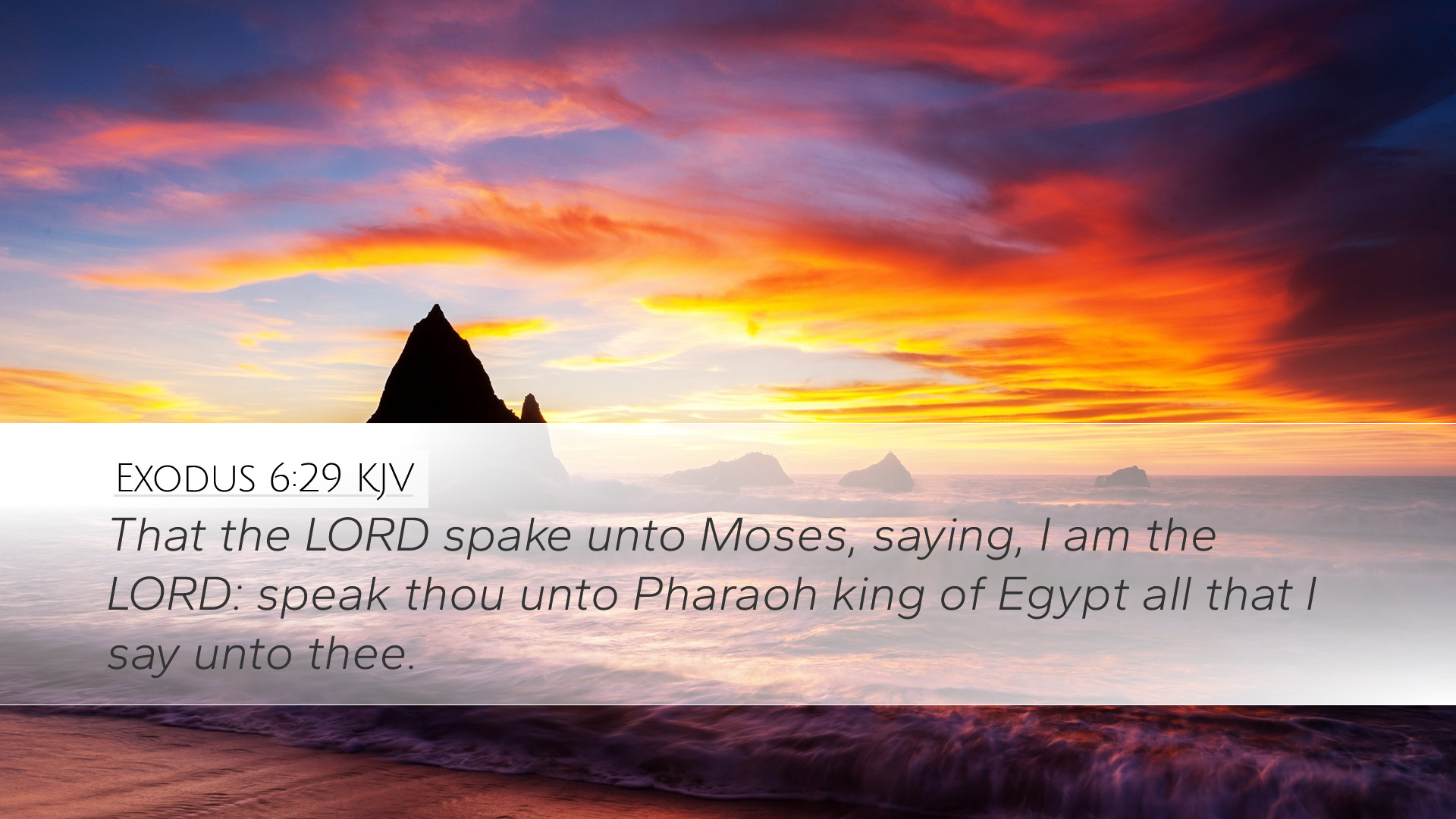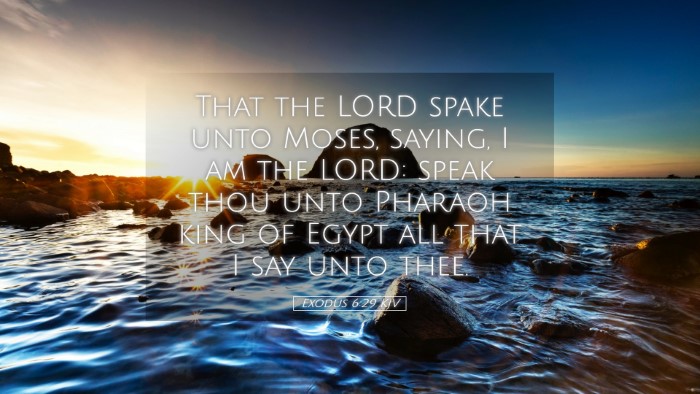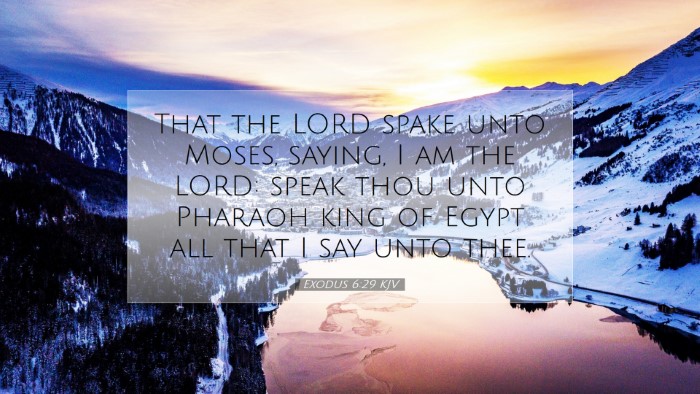Commentary on Exodus 6:29
Bible Verse: "Then the LORD spoke to Moses, saying, 'I am the LORD; tell Pharaoh king of Egypt all that I say to you.'" (Exodus 6:29, ESV)
Introduction
Exodus 6:29 captures a pivotal moment in the narrative of Israel’s liberation from bondage in Egypt. This verse situates the reader between the divine call to Moses and the impending confrontation with Pharaoh. Understanding this verse requires an exploration of its theological implications, historical context, and its implications for leadership and obedience.
Contextual Analysis
The preceding chapter details the further discouragement of the Israelites under the taskmasters of Pharaoh, emphasizing their suffering and the seeming shortcomings of Moses' mission. In Exodus 6, God reaffirms His covenant with His people, promising deliverance.
Divine Commissioning
Moses’ mission is highlighted in this verse. The command to speak to Pharaoh is not merely an action but a representation of God’s authority. Henry notes that God makes Himself known by His name through commands given to His chosen instruments for His purpose.
The Nature of Divine Authority
When God declares “I am the LORD,” it is a proclamation of His sovereignty and an assurance of His power over Pharaoh and the gods of Egypt. Barnes explains that this divine declaration aims at challenging the authority of Pharaoh, who considered himself a deity. God's authority supersedes all earthly powers, thus framing the narrative of deliverance.
Theological Themes
- Revelation of God's Name: The phrase "I am the LORD" serves as a foundational revelation of God’s identity. Clarke emphasizes the importance of God’s names in Hebrew theology, indicating His eternal, self-sufficient nature.
- Prophetic Responsibility: Moses is instructed to convey God’s commands boldly. The prophetic role entails faithful communication despite challenges—a theme that resonates with leaders and ministers today.
- Obedience and Trust: The directive to tell Pharaoh showcases the necessity of obedience. God asks Moses to step into a daunting task, urging believers to trust in divine assistance.
Practical Implications for Leadership
For pastors and leaders, Exodus 6:29 highlights several key principles:
- The Importance of Divine Direction: Leaders are called to seek God’s guidance and remain attuned to His voice when face-to-face with difficult situations.
- Courage in Confrontation: Just as Moses must confront Pharaoh, leaders today must be prepared to challenge societal norms and injustices under the authority of God's word.
- Communicating God's Will: The necessity of relaying God’s message with clarity and conviction is paramount. Pastors are equipped to interpret and convey divine revelations to their congregations.
Historical Context
The background of Israelite oppression under Pharaoh sets the stage for this prophetic encounter. A critical understanding of the Egyptian context enhances the weight of God’s command. The Israelites were subjected not only to forced labor but also to Pharaoh’s refusal to acknowledge the God of Israel, symbolizing a broader spiritual conflict.
The Contrast of Power
This confrontation between divine and human authority showcases the struggle between the Lord and Pharaoh. Henry comments on the irony that Moses, initially reluctant and fearful, is now tasked to confront the might of Egypt—reflecting the theme that divine purposes often flourish despite human frailty.
Conclusion
Exodus 6:29 encapsulates vital lessons for faith leaders, scholars, and theologians regarding the nature of God’s authority, the role of the prophet, and the necessity of divine obedience. As we reflect on this verse, let us embrace the courage to communicate God’s message in our own contexts, trusting in His unwavering sovereignty to act despite challenges.


